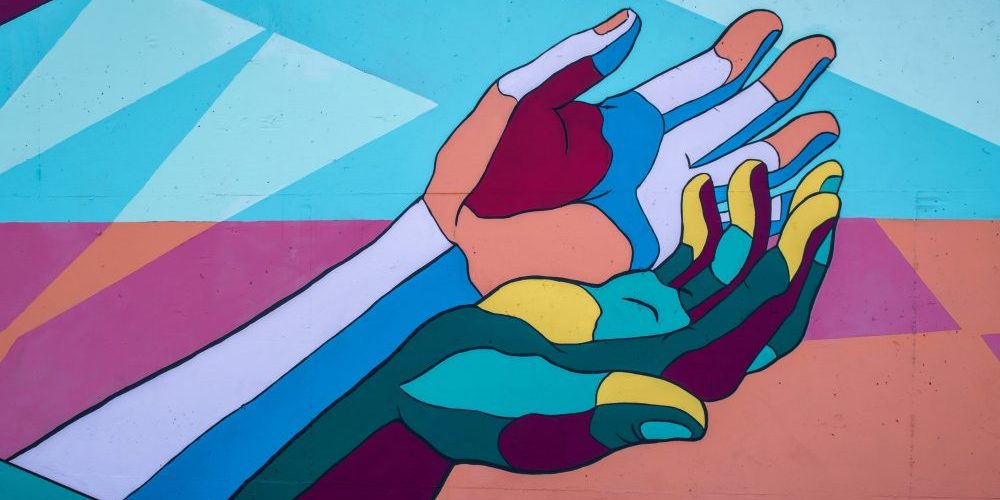Five steps for creating a commitment to higher common ground

I often hear it said that, as a nation, we’ve never been more divided. I also hear people lament that Government can’t seem to agree on anything that matters, and that we’re more partisan than ever. And certainly, the issues that challenge us today seem to always be politicized, whether COVID and the importance of masks, or the Black Lives Matter movement and continued civil rights movement, or the composition of the Supreme Court, or any number of societal issues that are impacted by the 2020 election. And for our employees, many of them are feeling the stress that comes with these angry divisions in society, coupled with the pressures of working from home. Although there are WFH benefits like avoiding expensive and time-consuming commutes, many feel more isolated, and in some cases feel lonely or even depressed.
For credit union leaders, we may find ourselves wondering if there is a role for us to play to help foster a culture where employees can engage in thoughtful, respectful conversations about the societal issues that weigh on their minds, affecting their otherwise positive outlook for the future. Many of us are engaging our teams in virtual discussions about diversity, equity and inclusion, and more specifically, the state of progress toward greater racial justice.
The high profile of our diversity, equity, and inclusion discussions really brought this to light for me. And I’ve found myself wondering if we should reach further to foster shared understanding and higher common ground on other societal issues that weigh on employees’ minds. Some examples might be affordable healthcare, retirement planning, the cost of higher education, balancing work with childcare obligations, and personal development for career planning.
I recently read an article titled, “Finding Higher Common Ground on Values”, published by the Center for Visionary Leadership. In this article, it is suggested that a process for “multi-stakeholder dialogue” create forums for discussion and deep listening, where everyone is heard and real concerns are shared. Many of us are doing this with our teams via zoom calls on the topic of Diversity, Equity and Inclusion and racial justice. This gives our team members a positive belief that the organization cares about broader societal issues that also impact how they provide core services.
Finding both one-on-one meeting opportunities and small group forums to discuss these issues can make team members feel more appreciated and also provide for a learning experience for both supervisors and employees. In doing so, we help our team members feel less stressed about issues affecting their personal and family security and growth. These conversations also project the organization as one that cares about more than the bottom line or just its own product offerings. This can give meaning to work and provide deeper respect for the role of leadership. There might also be a role for associations to have these dialogue sessions with member credit unions on topics other than just Diversity, Equity and Inclusion.
For me as a leader, I know that my role should be focused on creating a strategic vision, an operational structure and a staff culture for execution, and then drive shared results for the credit unions we work for. But as part of that, I realize more and more that as part of creating a caring culture, I can be a catalyst for difficult conversations and finding higher common ground on issues that lie outside my organization’s primary focus. In doing so, I’m confident that my team will be better informed and more fulfilled in both their work and their outside interests. While many issues relate to financial well-being, it may also be possible to provide forums for less safe topics like helping staff to find higher common ground on income equity, tax policy, healthcare reform and other issues being debated by public officials. While care should be given to avoid topics that challenge political and religious views, small, safe forums can be provided for facilitated discussions that help staff understand both sides of a societal topic like the continued march for racial justice in our nation.
At the end of the day, even in the most divided society, we ought to find higher common ground and agreement on a range of important topics that are in front of us right now. Limiting ourselves to purely financial services issues runs the risk of diminishing or short-changing our opportunities to make a true community impact. And to be clear, this isn’t about the leader over-stating or guiding consensus on topics, but rather it is about being a catalyst for thoughtful and respectful conversations. Ideally, leaders should participate as active listeners and learners while depending on professional facilitation of the discussions.
For the Michigan credit Union League and CUSG employees, we’re leaning on our DEI Impact Team to advise management on processes for better one-on-one and small group discussions that will begin with the search for higher common ground on racial issues. Later, we hope to expand to other topics that help our teams address the issues that create personal and family stress. This commitment to group dialogue is an example of our desire to allow for critical conversations that help us foster a more caring culture for our team.
Five steps for creating this process might include:
- Identify clear objectives for the outcome of the conversations such as fostering a higher common ground of understanding and generating recommendations for internal and external organizational action.
- Create and empower a Diversity, Equity, and Inclusion team and work with them to create a clear charge and objectives with reasonable time allocations for the full-staff communication forums.
- Prioritize topics and communicate a schedule for topics. Include a mix of one-on-one coaching conversations as well as smaller, voluntary safe forums for discussions, assisted by a professional facilitator.
- Measure progress by summarizing the results of participation and satisfaction levels by staff.
- Make a long-term commitment and exercise patience in learning and iterating to improve the process. Celebrate this as an example of a caring culture that seeks to relieve stress and gain higher common ground on important issues.
We’re all lifelong learners and our positions should evolve as we age and learn. Too often, in my opinion, the inability of democrats or republicans to find common ground is founded in their unwillingness to set aside lifelong biases and to learn from facts and truth vs. distorted media representations. Both sides are at fault. We owe it to ourselves as leaders and teams to search for the higher common ground and to thereby exert our personal leadership influence in elections and in policy debates. Helping our teams expand their view on this will help them be less cynical about government and politics and more engaged in helping to make progress. This will lead to a better staff culture and a more fulfilled and satisfied workforce. That should translate into a more purpose-driven service delivery as well.

